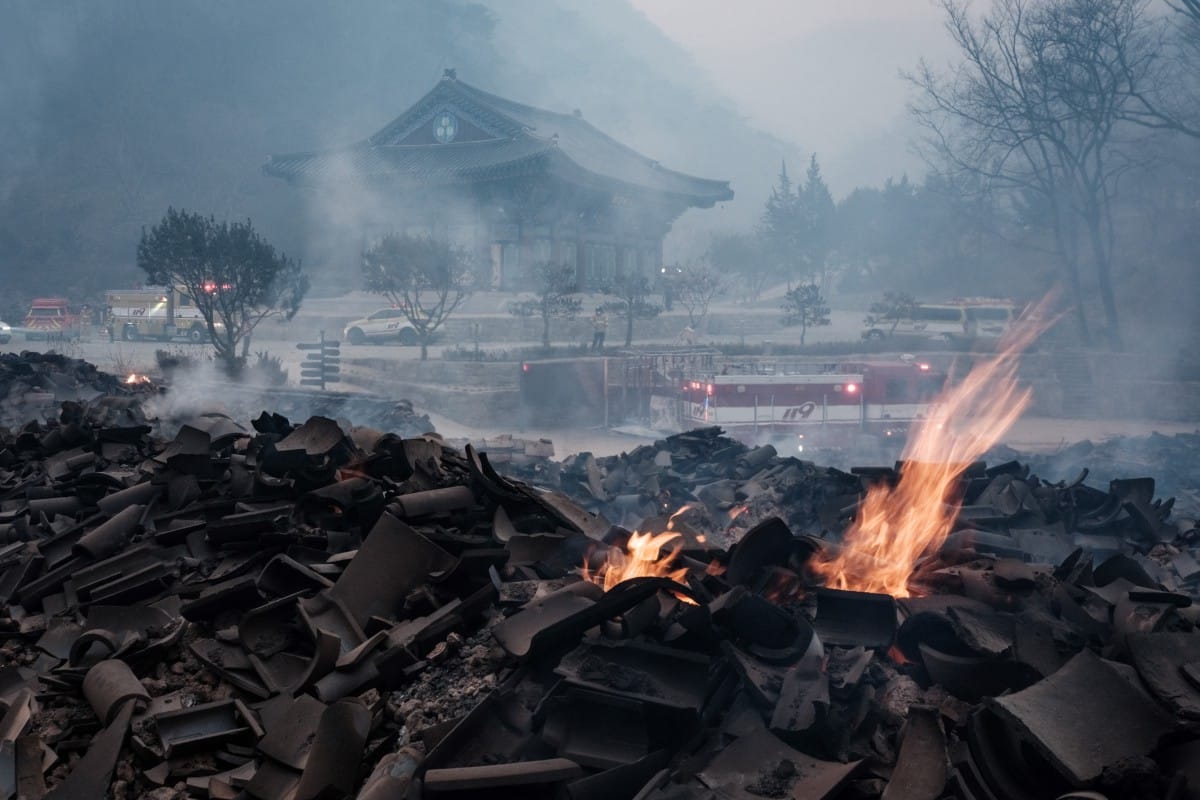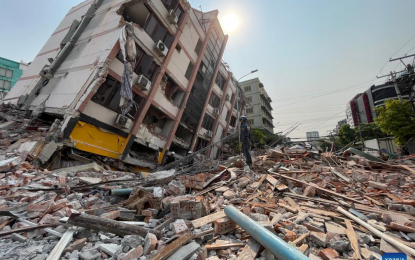At least 24 killed as ‘unprecedented’ wildfires devastate South Korea
Unprecedented wildfires in South Korea have killed at least 24 people, destroyed thousands of acres, and displaced over 27,000 residents. Strong winds and dry conditions are fueling the fires, putting cultural heritage sites and communities at risk.

South Korea is battling some of the worst wildfires in its history, with at least 24 people confirmed dead and thousands forced to evacuate. The fires, which erupted in multiple regions across the country, have destroyed homes, cultural sites, and vast forested areas.
Fires Spread Rapidly Amid Strong Winds
The wildfires started in southeastern South Korea, primarily affecting areas such as Uiseong, Andong, Sancheong, and Ulsan. The rapid spread has been fueled by strong winds and prolonged dry weather, creating dangerous conditions for both residents and firefighters. According to officials, more than 43,000 acres of land have been consumed by the flames, and over 200 buildings, including homes and businesses, have been reduced to ashes.
Rescue teams are struggling to control the blazes due to unpredictable weather patterns. Firefighters and emergency responders have been working around the clock, but high winds have made aerial firefighting efforts difficult.
Death Toll Rises as Firefighters Among the Victims
Among the 24 confirmed deaths, at least four were firefighters who died while attempting to contain the blazes. A helicopter pilot also lost his life when his aircraft crashed while fighting the fires. These tragic losses highlight the extreme risks faced by emergency responders in battling such large-scale disasters.
The government has warned that the death toll may rise as rescue teams continue to search for missing individuals. Many people who were unable to evacuate in time remain unaccounted for.
Cultural Heritage Sites in Danger
The fires have not only affected communities and livelihoods but have also destroyed historical and cultural sites. A 1,300-year-old Buddhist temple has been burned down, along with other heritage structures. Officials have confirmed that two state-designated treasures have been lost, and the famous UNESCO-listed Hahoe Folk Village remains at risk.
South Korea’s rich history is an essential part of its national identity, and the destruction of these sites has left many in mourning. Cultural preservation teams are working to assess the damage and protect other landmarks from further destruction.
Government Response and Firefighting Efforts
Acting President Han Duck-soo has described the wildfires as causing "unprecedented damage" and has ordered all emergency services to remain on high alert. The government has deployed over 130 helicopters and thousands of firefighters to contain the blazes.
Authorities have also issued the highest-level wildfire warning and urged residents in affected areas to evacuate immediately. So far, more than 27,000 people have been forced to leave their homes, with emergency shelters set up to accommodate them.
Despite the large-scale response, officials warn that the fires remain difficult to control due to ongoing strong winds and dry conditions. Residents are urged to remain vigilant and follow evacuation orders.
Climate Change and Increasing Wildfire Risks
Experts have pointed to climate change as a factor contributing to the increasing frequency and intensity of wildfires in South Korea. Rising global temperatures and prolonged droughts have created conditions that make wildfires more severe and harder to control.
Environmental groups are calling for stronger measures to prevent future disasters, including better forest management, increased funding for firefighting resources, and climate action policies.
Looking Ahead
With the fires still raging, the priority remains on saving lives and preventing further destruction. The South Korean government has pledged to investigate the causes of the fires and implement stronger disaster preparedness measures.
As the country deals with the aftermath of this disaster, communities affected by the wildfires will require long-term support to rebuild their homes and lives. The resilience and solidarity of the South Korean people will be crucial in overcoming this tragedy.
Sources:
What's Your Reaction?












/https://tf-cmsv2-smithsonianmag-media.s3.amazonaws.com/filer_public/54/66/546650fa-26a4-40fd-8d6d-5a7a04540f81/rosetta2.png)
:max_bytes(150000):strip_icc():focal(999x0:1001x2)/robert-prevost-050825-1-39395418ab494da5a3a700c9478e66c8.jpg)















































format(webp))
format(webp))


























